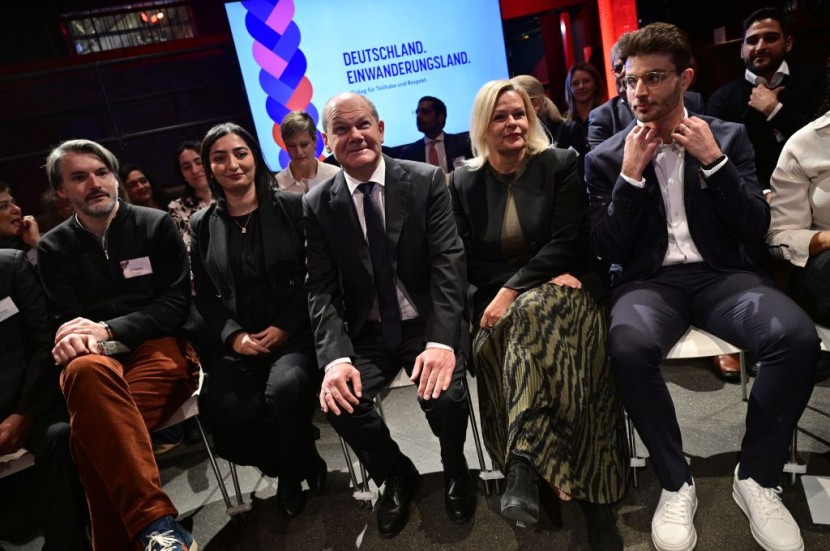
Germany has changed its mind on EU expansion by throwing a ratchet to request reforms in the process, threatening bloc disunity of its members. Asking for institutional reform threatens the bloc, already bursting at the seam as it hopes to undermine Russia.
Germany Questions EU Expansion
The matter of joining North Macedonia in the European Union to allegedly prevent a claim that Russia will invade it, reported Express UK.
Based on an EU code, Balkan states are prepping for eventual membership of the EU bloc, but the process has yet to be halted.
Last June, German Chancellor Olaf Scholz asked Bulgaria to stop its veto that prevents North Macedonia from joining the bloc. Emphasizing the veto is downing the hopes of Western Balkans to become part of the bloc.
These Eastern Partnerships are offered funds, technical help, wide market access, and several free trade deal with Tbilisi, Chisinau, and Kyiv. But, they must accept the rules and regulations of the EU, from administration and economic concerns.
Request for Reforms Tests Bloc Member's Unity
Berlin has changed its tone with the demand that all bloc treaties be reformed before any more members are taken in, which also affects bloc unity. But this move by Germany has been met with disagreement to request reforms with the Eastern and Scandinavian member states favoring EU expansion.
According to Jorg Kukies, state secretary at the Federal Chancellery and top adviser to Chancellor Olaf Scholz stated that institutional reforms are increment as a condition to admit these applicant states, noted Report AZ.
He spoke during the EURACTIV event and remarked as his government has precise positions about the matter and made it clear institutional reforms cannot be avoided. The expansion of the bloc should be re-examined.
Berlin issued an unpopular suggestion that was called out as dangerous by 13 bloc members in a posted statement last May. No words were minced, and they called it ill-advised and too premature to start such a process to effect treaty change at a serious junction.
Another speaker, Nicolai von Ondarza, head of the research division on the EU, commented about the stand of those opposed to reform. These states issued a non-paper against institutional reform and wanted a fast and uncritical process; they wanted more members in a quicker timeline.
Ondarza stated that the viewpoint of 30-plus members of the bloc in ten years is critical to effecting positive institutional reform. It is stressed that reform in the bloc is more needed than adding members that will waste the positive impetus. It will stall the accession of applicants who have waited nearly twenty years. Others like Bosnia-Herzegovina and Kosovo are yet to be candidates.
Ukraine is another applicant to the bloc only four days after the Russian special operation had begun in the Donbas. Next was Moldova, Georgia, and other smaller states with separatists spooked by Moscow. Compared to other applicants who waited for years, Kyiv was fast-tracked by Brussels recently.
Germany slowed down EU expansion to request reforms that are critical but might be detrimental to bloc unity.
© 2026 HNGN, All rights reserved. Do not reproduce without permission.








